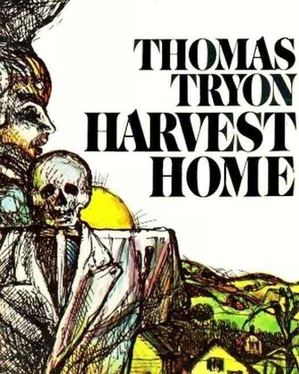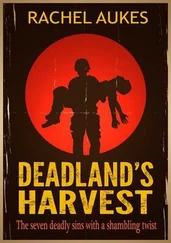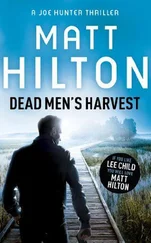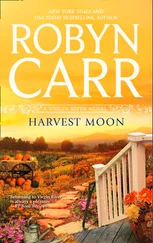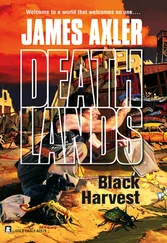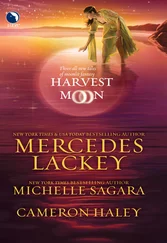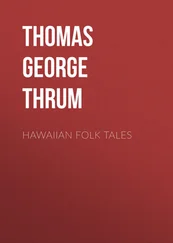“What’s for dessert?”
“Mousse au chocolat.”
“Are there any extras?”
“No. And you’re having fruit cup, anyway. You know what the Widow said about sweets. There are four mousses-two for your father and me, two for the Dodds.”
“Rats.” There was a pause while Kate munched a piece of toast, then: “Daddy, you know what an oracle is?”
“I have an idea-”
“Like they have at Delphi, right? And it tells you things, right? Well, Missy Penrose is supposed to be an oracle.”
“Is she filled with revelation, then?” I managed to suppress my smile by turning it into a yawn.
“Don’t laugh. They really believe it. You know about the Minervas’ barn?”
“Kate,” Beth put in, “that’s just a story; nobody believes it-”
“Sure they do. They really do. Yokels.”
Fred Minerva had been having a run of bad luck, all of which had stemmed, or so the villagers maintained, from his stumbling in the dance at Spring Festival. Soon after, he stepped on a rake and got blood poisoning; then his barn had caught fire in a July electric storm.
“But before it burned,” Kate went on, “he asked Missy Penrose if he should build a cupola and have a weather vane, and she told him, ‘Save wood, save iron.’ She was telling him a cupola and a weather vane would be a waste because the barn was going to burn, and it did.”
“Haven’t they ever heard about lightning rods?” Beth said.
“They don’t have them,” I said. “It’s not permitted. Nor insurance.”
“But it only stands to reason-”
“They’re not interested in reason, sweetheart. It’s the custom.”
“See? Yokels.” Kate put down her fork and went to the refrigerator. Beth said, “Darn, I’ve forgotten the picnic hamper. Now, where did I see it last?” She went out through the hall. Kate was rummaging in the refrigerator freezing compartment.
“Kate, are you happy here?” I said.
“Sure. I guess so.”
“Are you looking forward to school?”
“Um.” She closed the refrigerator and got a spoon from the drawer.
“We can always move back to Seventy-Eighth Street.”
“Aw c’mon, Daddy.” She ate for a moment. Then: “You said I could have a horse.” Angry, resentful.
“Sorry, sweetheart, you know what-”
“The doctor said. I know.”
I felt guilty about the horse. Unthinkingly I had promised it before we left New York, not realizing then the serious allergic effects of animals on Kate’s asthma. The doctor in Saxony, who had been treating her, had told us to keep her from direct contact with any four-footed creatures, but the trouble was far more serious than a mere allergy.
Since the age of nine, Kate had suffered from a congenital condition known as status asthmaticus, which continually imperiled her life. After years of treatment, to little effect, we had learned from a new doctor that the symptoms were self-induced, a form of psychosomatic asthma, whose origins had been eventually traced to the trouble Beth and I had had between us six years ago. It was, the doctor said, Kate’s unconscious way of getting even with us. Once, she had almost died, and only the respirator from the fire department had saved her. It became important that she not get overly excited or emotionally upset, either of which conditions was likely to induce another attack. Her last, a week ago, had come as a result of her disappointment about the horse. There was a tantrum, followed by a seizure, and the doctor had to be called over from Saxony.
“It was in the attic.” Beth came in with the picnic hamper. “Kate, open the window over the sink, can you? It’s such a beautiful day out, a real New England day.” She set the hamper on the counter and turned. “Kate! Rocky Road ice cream? For breakfast?”
“It’s just eggs and milk, Mom, just breakfast food.”
“And condensed-milk sandwiches for lunch. You’ll be breaking out in pimples again, and none of the boys will-”
“-look at me. Who cares.”
After making an issue of the ice cream, Beth now chose to ignore it. Anything to avoid a scene; but while the rod was spared, the child was spoiled. I had long since given up protesting.
“What are you going to wear today, dear?” Beth asked brightly.
“This.”
“Blue jeans and a T-shirt? Wouldn’t you like to wear a dress? Something pretty? For the fair?”
“What’s so special about the fair, anyway? Honest, it’s all anyone talks about. Yokels.”
“Kate…” Beth remonstrated gently.
“Do you know they go crazy?”
“Who?”
“The villagers. Moon madness. When the moon’s full, they go dancing in the fields and do crazy things.”
I looked up from my puzzle. “Do they turn into werewolves and vampires?”
“Well, it’s true .” Kate banged her spoon for emphasis. “And there’s a ghost, too.”
“I haven’t heard anything about ghosts,” Beth said.
“There’s a ghost out in the woods-”
“Who told you?”
“Missy Penrose. It comes out at night and eats babies and goes riding down the road on a headless horse-”
I decided Kate’s sense of drama had confused local superstition with Washington Irving. From conversations with Robert Dodd, I had learned that Cornwall Coombe tended to be slightly mythic in its lore, but I had not heard anything about a ghost.
Beth tried to calm Kate, who was prancing around the table making wild moaning sounds and generally imitating a spirit. “Darling, don’t go getting excited now. Go up and put on a dress, please? You’ll look so pretty.”
When she had gone, Beth gave me a brief look and I knew what she was thinking. What are we going to do about her? It was the one thing troubling our existence, and the thing we both felt guilty about.
I could hear the creak of the wicker as she filled the Hammacher Schlemmer picnic hamper. Across the hedge Professor Dodd’s sun-porch window slid open. In a moment a voice called, “Anyone up over there?”
Beth crossed to the sink and leaned to our window. “Morning, Robert. Lovely day for the fair.”
“Yes, it is.”
“Good morning,” Maggie Dodd called. “Marvelous day Just listen to that bird.” Maggie was enthusiastic about everything, as if she took it as a personal responsibility that we should like everything about Cornwall Coombe Yet it seemed to me that though her touch was light, in her own bantering way she was always putting the village down. “How’s the picnic corning?” she asked.
“Just finishing.”
“I think you’re crazy, doing the whole thing yourself. I could have done the dessert, at least.”
“I wanted to. It’s chocolate mousse. How are the martinis doing?”
‘I’m just going to fix them. Ned doesn’t want martinis?”
“Doesn’t like them.”
“I’ll put in some Scotch, then. See you later. I’m going; to get Robert’s breakfast.”
Beth turned off the tap, dried her hands, and began wrapping the chicken breasts in foil. Beyond the hedge I could hear Maggie speaking to Robert, then silence, then another voice:
“D’Artagnan trembled.
“‘Certes,’ said Aramis, “I do injustice to the beauties of this thesis; but, at the same time, I perceive it would be overwhelming for me. I had chosen this text-tell me dear D’Artagnan…’”
I recognized what we had come to call the Invisible Voice; the man who had recorded Robert’s talking-books. It was a daily sound that we had become accustomed to, and through the summer I had caught portions of the remainder of Great Expectations , followed by Madame Bovary , and this week The Three Musketeers . Robert was reading his way through the classics.
Читать дальше
